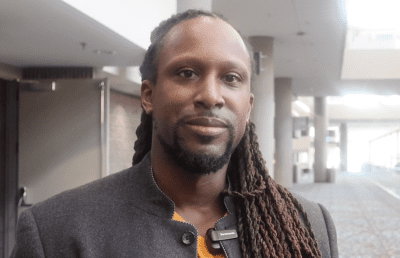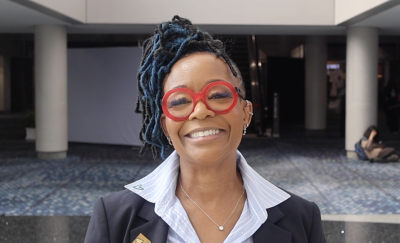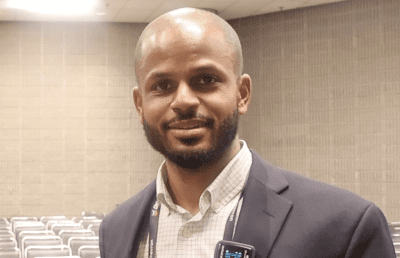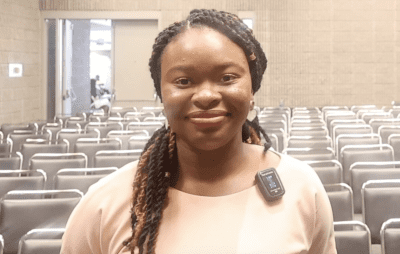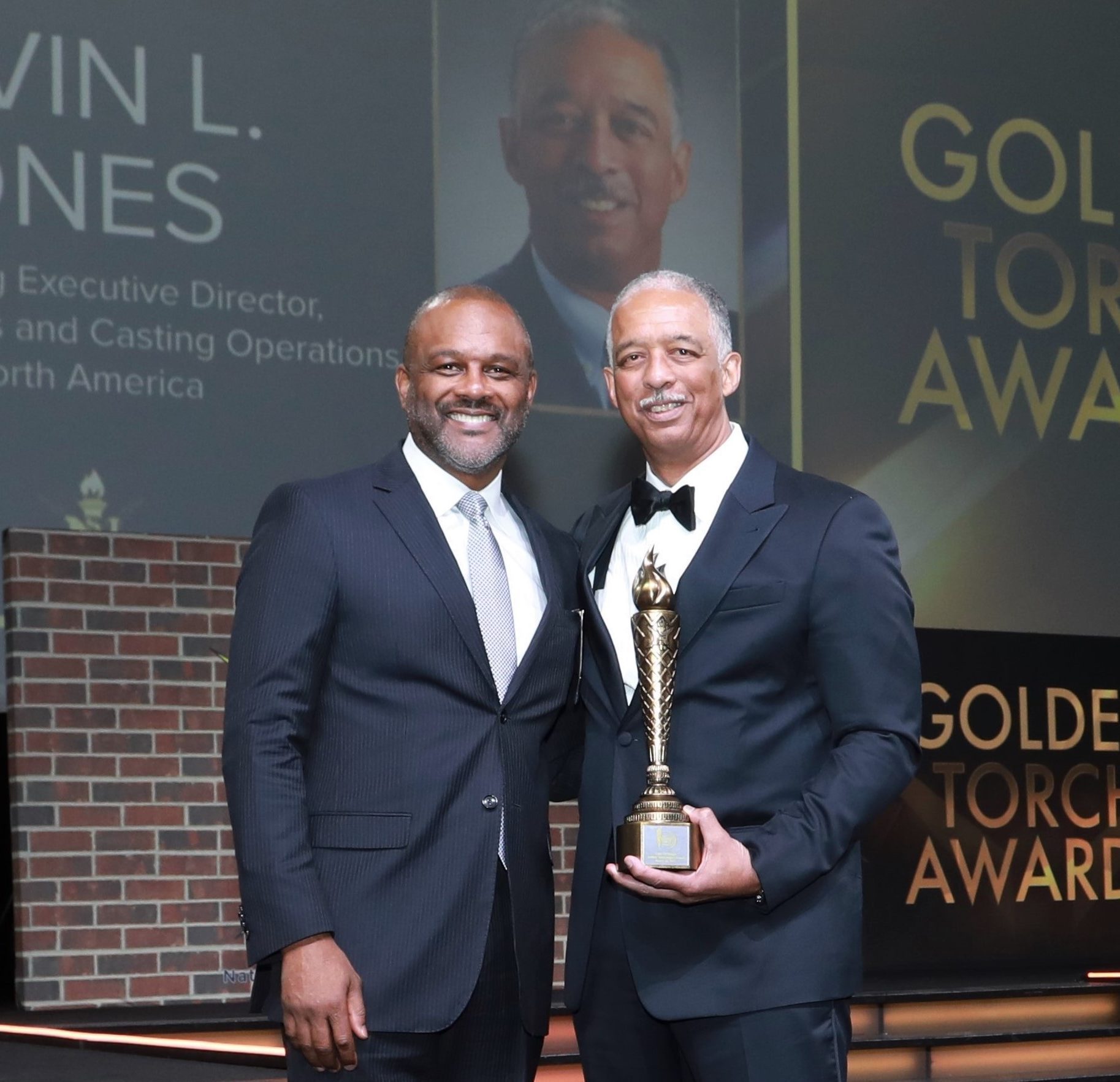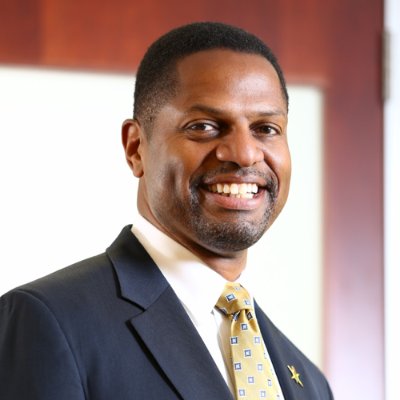
Educator, executive and engineer Karl W. Reid, Ed.D. has spent decades studying what makes students successful, or not, in academic settings. Dr. Reid, executive director of the National Society of Black Engineers since 2014, has compiled his knowledge and new insights in a recently published book titled Working Smarter, Not Just Harder: Three Sensible Strategies for Succeeding in College … and in Life.
Read what he has to say.
Why did you write this book?
I was a good student in high school. However, like many who had early success, I hit a wall my freshman year after which I realized that the learning strategies I employed in high school were ineffective in the more challenging environment, particularly in engineering.
“Working Smarter” guides high school and college students through the learning approach that helped turn things around for me as an undergraduate, an approach that I refined as a doctoral student, a freshman advisor, and a college dean. The book is based upon a set of workshops I taught for pre-collegiate and collegiate students who achieved great success. It will help students get smarter — not just intellectually — but smarter in the way they approach their work — any work.
What’s the story behind the title?
In my years as a student, advisor, researcher, dean and now advocate for broadening access to college and engineering, I’ve observed that there are one of two ways that students respond to academic (and similarly professional) challenges like mine.
The first group shrinks back because their view of their “smartness” is tested with the difficulty. These are the students and even young professionals who pull back their effort, change their major, transfer to another college, change jobs, or drop out completely. The statistics bear this out. Barely more than half of all college students earn a four-year degree within six years of entering as freshmen, and 28 percent don’t return after their first year! If they’re a male or a person of color — African American, Native American or Latino — their odds of obtaining a bachelor’s degree in six years are even worse.
The other group finds an embedded, and oftentimes unexplored resolve to face down the academic challenge. They apply a level of grit in new resilient ways like I did (miraculously). A 38 on my first physical chemistry exam prompted me to buckle down.
However, just working harder is not the only effective response to these trials. It’s true that students need to work harder by putting in more hours to prepare for class. According to one recent study, the average number of hours college students spend doing schoolwork outside of the classroom has dwindled over the past 50 years, from 24 hours per week to only 15.
But putting in more time doesn’t always translate into better grades or deeper learning. Rather, to be effective, students need also to learn how to work smarter.
What do you hope readers will glean from reading your book?
This book provides a set of strategies that students can adapt to their own style and situation. And it offers a mindset — a way of thinking — that will underpin those strategies as they learn to adapt them to meet their particular needs.
These strategies, I’ve discovered, make all the difference between successful and unsuccessful students. I call them “shifts,” because most students have to dramatically shift their thinking and their actions in college to succeed. Doing the same thing harder and for longer periods of time is like revving an engine in lower gears. It doesn’t get the job done!
“Working Smarter” is all about shifting gears. Specifically, how making three specific “shifts” will help students succeed in college:
The first one, The Attitude Shift, focuses on developing a new mindset about their intellectual ability, and on the importance of confidence and how to rebuild it, especially after they suffer setbacks like I did.
The Connections Shift shows how important it is to engage faculty and peers on campus, and how to do it. This chapter teaches students how to approach teachers, even if they’re shy, and how to utilize study groups of fellow students to maximize their learning.
And finally, The Behavior Shift offers practical steps for improving grades and deepening their learning. This chapter provides both the rationale behind and the steps toward, developing the kind of comprehensive approach that has helped countless students succeed.
One could apply these strategies as a professional as well. In fact, my research and the broader success studies boil down to the same three central differentiators between the successful and the mediocre professional: 1) winning attitudes; 2) empowering relationships, and 3) productive behaviors.
How long did it take you to write the book?
I began writing in 2012 and finished in 2013. I subsequently hired an editor who completed his work on the first two chapters in 2013, after which I put the project on hold until the summer of 2016 and was published in March 2017. Thus, in total, the book took about five years to write and publish.
What was your regiment to complete the book?
With a demanding job as senior vice president of Academic Affairs and Strategic Initiatives for UNCF (the United Negro College Fund) back in 2012 and 2013, I would wake up early Saturday mornings in to write for 4 or 5 hours. I would occasionally use Sunday mornings to clean up my drafts. I’d also take advantage of holidays and longer vacations. When I began the book writing, I outlined the sections and mapped out a plan to finish a chapter a month, though that schedule eventually slipped because a section required more than anticipated, or work and family schedules precluded me from writing on certain weekends.
How did you arrive at this career choice? Was it a deliberate decision or a gradual and natural evolution?
I began my career in the computer/software industry but always felt strongly about education. As an undergraduate engineering student, I hosted outreach programs for local Cambridge (MA) and Boston middle and high school students to expose them to careers in engineering and to MIT. After 12 years in the tech sector, I answered “the call” and returned to my alma mater to lead the Office of Engineering Outreach Programs in MIT’s School of Engineering.
In the third year in this role, I began a part-time doctoral program focused on understanding the factors that contribute to the success of underrepresented groups. In the process, and while leading these programs, I developed a series of workshops called “Working Smarter” for high school and undergraduate students which became the genesis for the book.
What separates you from others in your field? What is unique to the experience that you create?
There are numerous attributes that combine to make my experience unique:
1. I struggled initially as a college student, despite being a top-ten percent high school graduate at a competitive magnet high school. The strategies that are described in the book were born out of my experience as a struggling student that turned around my performance, leading to two engineering degrees, a doctorate, and successful careers in both the tech and education sectors.
2. I worked in the tech industry for over a decade.
3. As a researcher, I’ve studied the factors that contribute to the success of students in education.
4. I’ve taught seminars and workshops for college and high schools students which serve as an existence proof for the Working Smarter strategies.
5. I enjoy intersecting various schools of thought, from neuroscience to cognitive science, from technology/engineering to business, from diversity to social justice.
6. Following Parker Palmer’s admonition to “Let Your Life Speak,” I believe that in creating access, opportunities and teaching a belief system and successful strategies for students to be successful is my life “speaking.”
For those considering entering this arena, what skill sets do you recommend mastering? What traits are most conducive to success?
Robert Greenleaf coined the phrase “servant leadership” which is an essential core value for this work, that is, the passion [for serving]. Second, the ability to read, synthesize and apply the educational literature regarding diversity and success factors for students in higher education, particularly among underrepresented groups, is important. Finally, the ability to communicate these complex attributes and research-based strategies to diverse audiences including practitioners and students is essential.
How do you stay at the leading edge of your craft?
I am constantly reading the latest literature about diversity, learning theory, management and leadership, and social psychology. In addition, I attend and speak at conferences hosted by the National Science Foundation, the American Society for Engineering Education, and the American Association for the Advancement of Science, to name a few. Finally, I regularly listen to leading NPR podcasts including the TED Radio Hour, Hidden Brain, Freakonomics, and Invisibilia.
Do you think that there are widely held misconceptions about what you do? If so, what are they and how do you work to dispel them?
The major misconception is about engineering, and who engineers are. Engineers are viewed as nerds with pocket protectors, and mostly male and white. (It took 22 images in a recent Google search for “engineer” before the first person of color was shown.)
I enjoy challenging stereotypes about engineers and engineering, presenting us as solving the world’s problems that are important to improve the quality of life of the global citizens. Rather than speaking about specific engineering fields (electrical, mechanical, biomedical, etc.), I speak about producing clean water and sufficient food for the world’s growing populations; extending electrification and safer, faster, more efficient transportation; and producing alternative energy and ensuring cyber security. This solutions-based message resonates with prospective engineers and the broader population because these are the same concerns they have.
How do you map out your goals? How do you measure your success?
Back in the early 1990s, I read Stephen Covey’s First Things First, one of the 7 Habits of Highly Successful People. The book provided me with an approach to set long- and short-term goals based upon my value system and personal mission statement, through which the book guides the reader to articulate and construct. Covey’s value-based or purpose-driven goal-setting has influenced me ever since, down to weekly goals I set after planning for my four essential needs (To Live, To Love, To Learn, and to Leave a Legacy). By the way, I lay out my goal-setting strategy in the book.
Who do you consider to be peers in your field? Who do you see or use as examples to emulate?
Dr. Donna O. Johnson Mackey, the author of Guaranteed 4.0 is one who I emulate. A contemporary and also an engineer, for over 20 years now, Dr. Mackey has outlined a strategy, a program, and a set of workshops that help a student achieve success.
Name two of your top role models: one from your industry and one from outside of it.
Dr. Freeman Hrabowski, President of the University of Maryland Baltimore County. Dr. Hrabowski created the Meyerhoff Scholars Program, which for the past 25+ years, has produced hundreds of exemplary students of color who entered doctoral programs and medical schools. Dr. Hrabowski is an administrator, researcher, author, speaker and advocate for the underrepresented and underserved.
Outside of my industry, the Rev. Dr. Ray Hammond is a role model. Dr. Hammond, and his wife the Rev. Dr. Gloria White Hammond, co-pastor the Bethel AME Church in Boston. Dr. Hammond introduced me to the growth mindset when I was an undergraduate student and helped me reconcile my interest in education, the ministry and engineering. He’s also led community- and state-wide efforts in education, universal healthcare, and violence remediation among gangs. I admire his ability to apply his faith to work with others to solve complex social problems.
Name three books, works, performances or exhibits that changed how you view life, yourself or both.
Two of the books I’ve already named:
• Savage Inequalities by Jonathan Kozol, helped me discover my passion [for addressing] educational disparities in America.
• First Things First by Stephen Covey, gave me the tools to determine, on a weekly basis, “What Matters Most”.
• The Bible has helped me discover my purpose and calling.
Why do you consider continued learning important?
The growth mindset belief system to which I ascribe has a parallel biological component called neuroplasticity. This relatively new understanding, mainstreamed by Norman Doidge in “The Brain that Changes Itself,” speaks to the empirical fact that the brain can reconfigure itself when exposed to new stimuli. This is why I believe in continuous learning — there is no topic or experience that I, or others, can’t learn. Rather, everyone can learn, and perform at a high level through “deliberate practice” in the proper contexts.
What affirmations do you repeat to yourself that contribute to your success?
In keeping with the growth mindset, when I experience moments of doubt and discouragement, or when I fail at something or fall short of my own very high expectations, I tell myself that I can get better/smarter at it. Specifically, I affirm that “I may not be good at this…YET!”
Moreover, my faith reminds me that I have been called for a purpose that is larger than me, and thus SETBACKS are SETUPS for a greater purpose.
What role does technology play in your day-to-day life? How do you utilize it?
I am a list-driven or task-oriented person. I set goals [for] the week and by [the] day, and then plan the tasks necessary for that day to achieve the goals, even if they are one-off tasks or projects. I use ToDoIst, a cloud-based productivity tool that plugs into my mail system (Gmail) and that helps me organize my day. Because it is cloud-based, I can view and interact with it on my laptop (Microsoft Surface), my smartphone (Apple iPhone) and my smartwatch (Apple Watch). I use this ecosystem, along with Amazon’s Echo to organize my day, plan my work, stay abreast of the news and the latest research and podcasts, and keep in touch with family, friends, and stakeholders.
What software, app or technological innovation has made the biggest difference in your life, career or both?
More broadly, cloud-based computing integrates all of my platforms (see above) into one integrated unit to which I have access regardless of where I am.
My personal brand.
I believe in God and His power to give distinctive vision and purpose to everyone that answers the question, “What on Earth am I here for?” a question that when answered and internalized, can have a significant impact on others and the world.
I have a gift to inspire and teach, to break down complexity by using metaphors, concepts and relationships across distinct disciplines, bridging relevant theories in sociology, psychology, neuroscience, education, business and technology and translate the learnings that derive from their intersection into action. I am good at developing and making the case for new ideas, bringing order and applying structure to new initiatives.
As a leader, I “begin with the end in mind,” driving teams to answer the “so what” question so that there is a collective understanding about, and buy-in for a project’s objectives and goals that link to intended outcomes. I favor an inclusive and collaborative approach when leading, preferring to include a diversity of voices — particularly those who don’t feel empowered — and motivating them to discover their strengths and ever-better collective solutions. I take pride in helping others identify and develop their gifts and build confidence, and adopt a mindset that embraces risk and growth, purpose and passion, vision and hope. I embrace a growth mindset, willing to take risks in the interest of learning and getting better, being open to feedback and improved ideas.
I draw power from God’s purpose for my life: To serve, educate and inspire the underrepresented and under-served; to speak for those who can’t or are fearful to speak for themselves.
I embrace those who have a vision for the future, compellingly and clearly articulated, that aligns with my sense of purpose, ignites my passion, and offers creative space to apply my unique imprimatur to that vision.
What is your favorite vacation destination and why?
The town of Oak Bluffs on Martha’s Vineyard Island in Massachusetts. The island is very diverse; for decades it’s been a vacation spot for successful African Americans and others who seek a sanctuary from the demands of the workplace and yet can be completely present with family, friends and even strangers who are similarly situated.
If you could change one thing about the world, what would it be?
I would ensure that the world’s children have access to high-quality education, as defined by their country’s norms, values and cultures. Education should not be rationed based on socio-economic status, caste, race, gender, skin color, or national origin. I believe nothing contributes more to social change like education.
If you could change one thing about yourself, what would it be?
I’d be less future-oriented, and more in-the-moment. I’d pause more and listen to conversations fo conversation sake, and be more patient with my family. Recently, I have begun to set aside one day a weekend to enjoy a day of rest, with no lists (no “to-do’s” for the day).
I’d also laugh more, and be more relational. Taking the time to build relationships is key to emotional health and personal and professional success.
What does it take to be iconic? In your estimation, who has achieved that status?
To be iconic in this space, one has to have a long (15-20+ years) track record of continuous success in a field, and/or achieved a breakthrough thought that transforms the field. Dr. Freeman Hrabowski, whom I mentioned earlier, fits that definition. Dr. Carol Dweck, who advanced the growth mindset (incremental goal orientation) notion, is another exemplar. With Working Smarter, and the concomitant workshops I’m leading, I’d like to become the icon for advancing the belief that all students can learn at high levels regardless of their background if they employ the beliefs and techniques advanced in this book and the workshops that follow.

